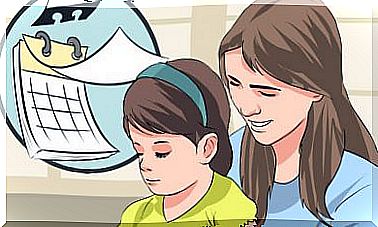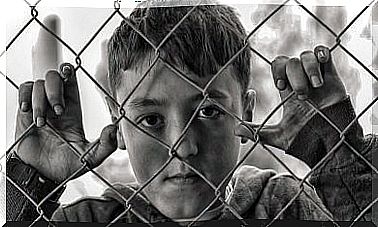To Us, Who Are Sometimes Aware That We Have Not Treated Our Son Well

Sometimes a “Shut up!” or a “What you do is bother!”. Words that we utter in a scream and instantly, our soul is shattered to pieces. Because we know that we have not done well, that nerves have been stronger than patience …
No one is immune from error in parenting and education. Super mom and dad do not exist, they are just people who from time to time say and do what they should not. Sometimes it is due to sheer exhaustion, stress or maybe even inexperience in the early years.
We should not flagellate ourselves with it. The moment we perceive that we have not treated our son or daughter well, there is only one solution: ask for forgiveness and make amends. Heal the confusion, heal the crying and put that band-aid on the heart with which, show children that sometimes mom and dad are wrong too.
We suggest you reflect on it in “You are Mom” . We are sure it will help you.
Those moments when we don’t do it “too well”
It is often said that in parenting, what we seek above all is to avoid the mistakes that our parents made with us. We want every detail to be perfect. May our sons and daughters achieve what we did not achieve, may they have what we did not have.
All of this is highly commendable. However, there is something that we must be clear about. Educating is not obsessing over what we “want”. But in what the child needs. Every day with them is new and challenging. They will become demanding, curious, insistent, and even challenging.
It is normal that sometimes, we make mistakes with them. Nobody has the perfect manual of education. However, there are some backbones that we cannot neglect.

What your child requires of you is PATIENCE
If you are not patient, ask yourself first if you really want to have children. Because nothing in this world is going to require as much affection, consideration, empathy, love and tolerance from you than a child. Patience is not learned in a book. You have or you don’t have patience.
- Mothers and fathers who do not have a patient attitude become demanding.
- The demand creates stress and personal insecurity in the child. It must be borne in mind that each creature has its own maturation rate, its times, its needs. If we demand things from them that they simply cannot give us, we will further frustrate their growth.
When you don’t do something right, your child will show it to you with his eyes
You will perceive it at once. The emotional impact of a child when he feels neglected, when he is yelled at or is disappointed, is imprinted on his expression.
- As a good mother you will notice it immediately. That intimate and firm bond that unites you is what causes you to realize that you have not done well. That you have failed him. That the nerves of the moment have been able to you or that the strategy you have applied was not the right one.
- Sometimes we do things thinking it is for their good. However, after a while, we realize that this is not the case. If your child is afraid of the dark, do not ironically say that he is too old for such nonsense. If he pees at night, don’t scold him.
All of these are small examples of those failures that fathers and mothers have almost unintentionally.

The importance of asking our children for forgiveness
We teach our children to say good morning, to say thank you, and to ask for forgiveness when they should. Do you think perhaps that adults do not also have the obligation to apologize to our children when we make mistakes? We have her.
As adults, we must ask for forgiveness when we don’t do something right. It is an obligation and a right towards our children. This will not make us more fallible before our children, it will make us “people”, fathers and mothers who put the welfare of their children first to make them see that they love them. And that every day, they want to be better for them.
Take into account now all those aspects in which from time to time, we fail. Behaviors and mistakes that are common in the upbringing and education of children.
- You won’t do well when you promise something and then don’t deliver.
- You disappoint your children when you do not serve as a model with what you preach.
- You don’t do well when you yell.
- Never compare your child to other children.
- Never ridicule, correct or criticize your child in public.
- Don’t tell him he’s clumsy, that “he can’t”, “that he doesn’t know.” Teach him that he can.
- Never say “you’re bothering me.” Better tell her something as simple as “Mom is busy now, wait a minute and I’ll be with you.”
- You won’t do well when you leave one of their questions unanswered. It does not matter that there are many, that they are strange or nonsensical. Your opinion counts for your child and it is what they need: that you be their guide. Your voice for all your doubts …

Be patient and don’t beat yourself up for making mistakes every now and then. The important thing is that every day you strive to do better.









